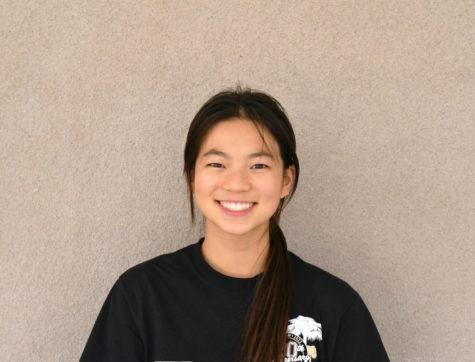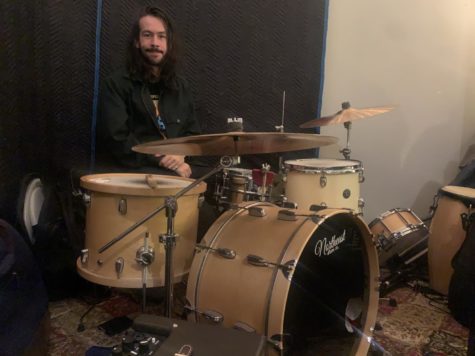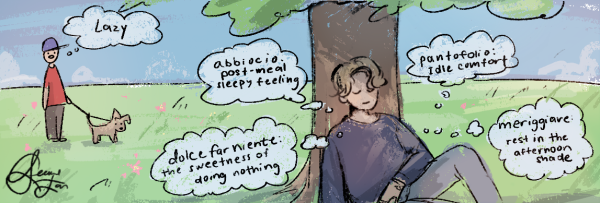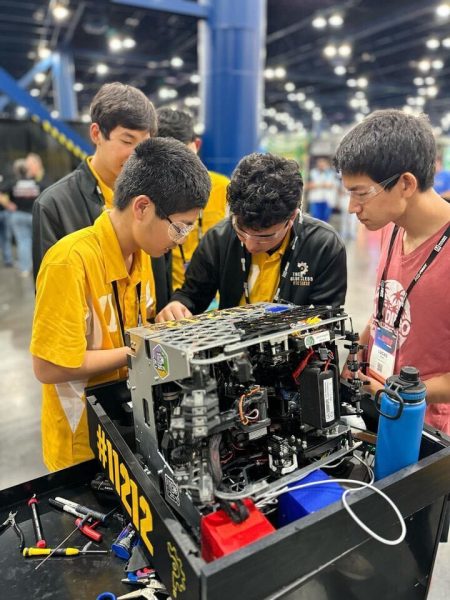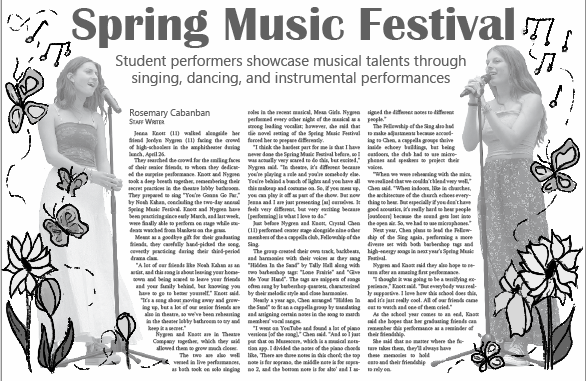Eagle explores programming passion
December 17, 2021
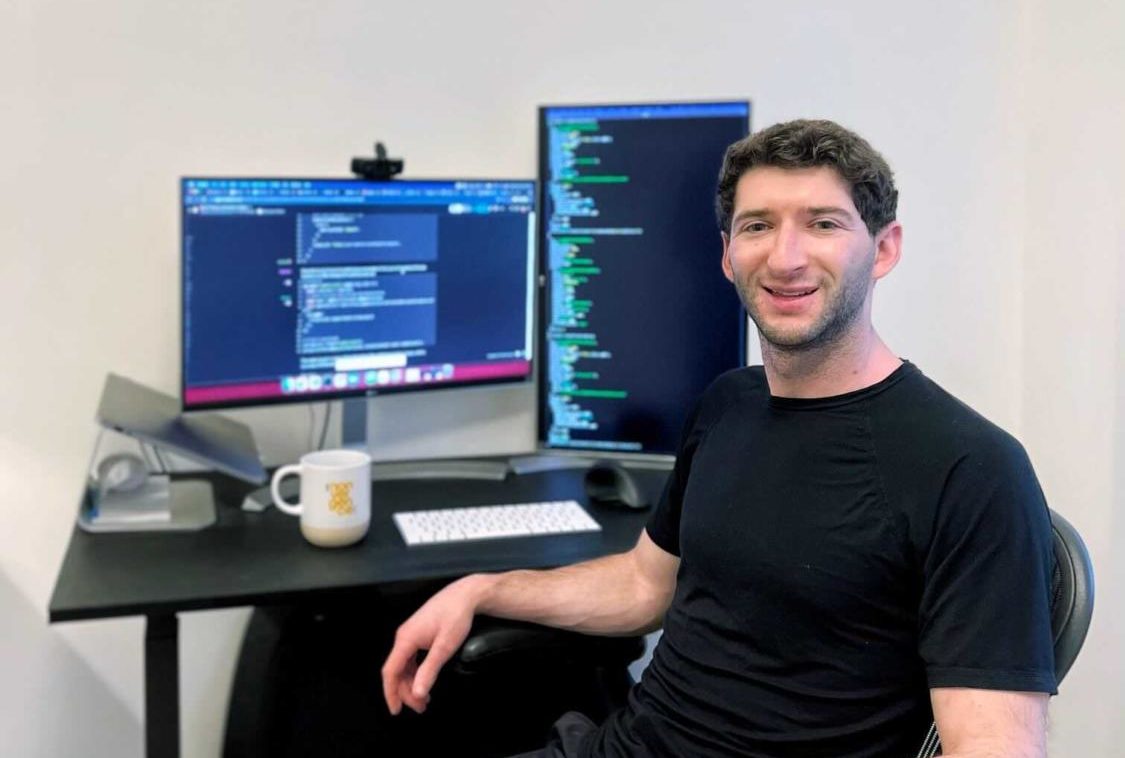
Adam Eagle has done web, game, app , iOS, Android development. Back-end, front-end, machine-learning, data engineering. The whole gamut of things.
Today, Adam Eagle works in financial technology as a technical lead for Stripe, a software company that allows customers to pay with their credit cards digitally on company websites.
“I build software for businesses that are looking to do online commerce,” Eagle said. “I would have never guessed five years ago that that’s what I’d be working in.”
“We have over a million businesses and we’re the second-largest private tech company in the world,” Eagle said. “If you’re an adult in the US, there’s an 80% chance that you’d use Stripe, but you wouldn’t necessarily know it because we’re in the software layer. Zoom, for example, handles all their payments on Stripe.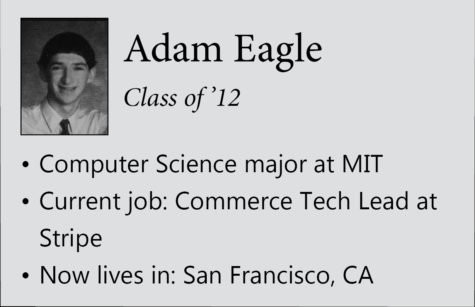
“[At Stripe] we’re building products to help eCommerce businesses,” Eagle said.
Although he has worked in the software world since graduating from MIT in 2015, Eagle’s journey to his work today has not been linear.
“I never would have guessed that I would have gone into the healthcare space,” he said. “I did Fintech, and I never would have guessed that I would have done that either. It’s one of the cool parts about tech—you really get to explore different industries.”
As a senior at Westview in 2012, Eagle had a loose vision for his future.
“I knew that I wanted to study computer science and technology,” he said. “I also wanted to do something entrepreneurial and writing software. But I didn’t know exactly what that would mean.”
While a student at Westview, Eagle founded HUMEC tutoring with teacher Stephanie Tanaka to provide assistance to sophomores in Honors Humanities.
“I liked Humanities [because] you could form an opinion about something that you didn’t necessarily know the answer to,” he said. “And you can try to argue that opinion and find evidence or counter-evidence for that.”
Unlike the black-and-white nature of math and science classes, Humanities provided Eagle with a gray area to explore a new type of logical reasoning.
“The math or science you do in high school is more like pattern matching,” he said. “But when you start doing higher-level math, it’s very much proof-based and it’s very analytical. In some ways, Humanities in high school was more analytical than math and science in high school.”
The humanities are subjects that tend to be undermined for those who pursue math and science.
“To be successful in any industry, you can’t just be really good at science and math,” he said. “You also have to be good at communication. You have to be good at writing.”
Coupled with HUMEC tutoring, Eagle also dedicated his time to Westview’s Robotics and Science Olympiad, but his niche was his hobby outside of school; a young passion sparked at age 12.
“My brothers were playing a video game and I realized that you could adjust the video game by writing some code, so [I tried] to do that,” Eagle said. “So while my brothers were playing the game and I was trying to modify it by writing some code.”
In high school, Eagle started building websites in a programming language, PHP.
“I started with my own website and I realized it [wasn’t] that hard and other people need websites,” he said. “I helped a bunch of other friends of mine at the time. I helped a Westview alum, who’s a professional musician, create his first website.”
Steadily, Eagle’s online connections blossomed through friends and his own exploration online.
“I was a 14 or 15-year-old, making things on the internet and doing business deals with 30 or 40-year-olds, and they were sending me money on PayPal. It was kind of crazy.”
Soon after, Eagle discovered a marketplace for Adobe Flash games—simple, casual games played through a web browser before mobile games blew up.
“I’d make a flash game and sell it,” he said. “There was a marketplace for developing and selling sponsorships or advertising. That was pretty hard to find when I was like 14, but nowadays, there are so many of them out there.”
Adam says that students in high school tend to doubt whether or not their creations are worth money or useful out of fear that it’s considered very novice.
“It turns out if you solve someone’s problem, they’re willing to pay you for it,” Eagle said. “So, if they really need a website and you build a website for them, they will pay you for it. Or, if they really want to sponsor a particular game, they’ll pay you for it, even if the code behind the game wasn’t amazing.”
Although it would’ve been easier to use templates for websites or Flash games, Eagle opted to create his programs from scratch.
“It was a great way to learn how to build these things,” he said. “Coding was one of my first places to explore a complex space and make mistakes. Choosing to build [websites] from scratch was probably was a mistake in terms of how maintainable the website was, but I learned a lot.”
Coding and his other extracurriculars consumed much of his time in high school—leaving him with little opportunity to engage in social events.
“I wasn’t super involved,” he said. “I never went to the school dances. I didn’t go to that many football games. So I feel like I probably could have been more social in high school, met more people, and built up a better network.”
But in college, everything changed. In 2013, Eagle enrolled at the Massachusetts Institute of Technology (MIT).
“When I went to college, I had made a bunch of mistakes in terms of how to build things, and I knew I had a much better sense of how I should build things correctly,” he said.
“I was able to be a lot more social in college,” Eagle said. “People probably think about MIT as a boring, very academic place, but it’s actually a very fun, social place.”
Determined to participate in events and manage his classes, Eagle had to prime his time-management abilities.
“The hardest part about freshman year in college is being mentally prepared to balancing a social life with academics,” he said. “Compartmentalizing both parts is tough.”
But Eagle rose to the challenge. In the end, he developed a strong education in STEM and the humanities.
“At MIT, you could take all these courses and so I did,” Eagle said. “I took a course in software engineering, one in web engineering. Other courses focused on machine learning and computer security.”
Despite the complexity of his coursework, Eagle still found the most value in building things himself.
“The more that you build, the more you’ll learn,” he said.
Outside of his classes, Eagle fostered his desire to create.
“[During] my freshman year I tried starting a company and raised a little bit of money and tried doing it while I was in school,” he said. “It was kind of a mess because I was trying to take all my classes at the same time.”
His startup app SplitMyTaxi sought to innovate in the taxi business by splitting a taxi with several people.
“The taxi companies didn’t want us to do that so we ended up kind of having to pivot,” he said. “Then, we pivoted so far that we said, ‘Okay, this is just not gonna work out.’”
Pivoting is a strategy businesses take by altering their product due to changes in demand.
“Success in business and technology is more about how quickly and effectively you can pivot your ideas,” Eagle said. “Not necessarily having the best idea from the start; it’s very rare that somebody starts their company with the same idea that they grow their company with.”
After selling his stake in the company in 2013, Eagle interned at several startups outside of school.
“We were trying to build new products, from the ground up. I would be the first or second software engineer hired.”
During his senior year, he co-founded a machine learning predictive analytics company for sport teams.
“We were ingesting all of their ticket sales data, and predicting things about the ticket holders,” Eagle said. “We would predict whether a person would show up to the game or if the holder would renew their season ticket.”
However, Eagle and his co-founder had a different vision of the company so he continued on new journey: joining Stripe, where he works today.
“Anyone at Westview could come up with an idea and pursue it,” Eagle said. “I encourage people to see if they can get anyone to use it.”


